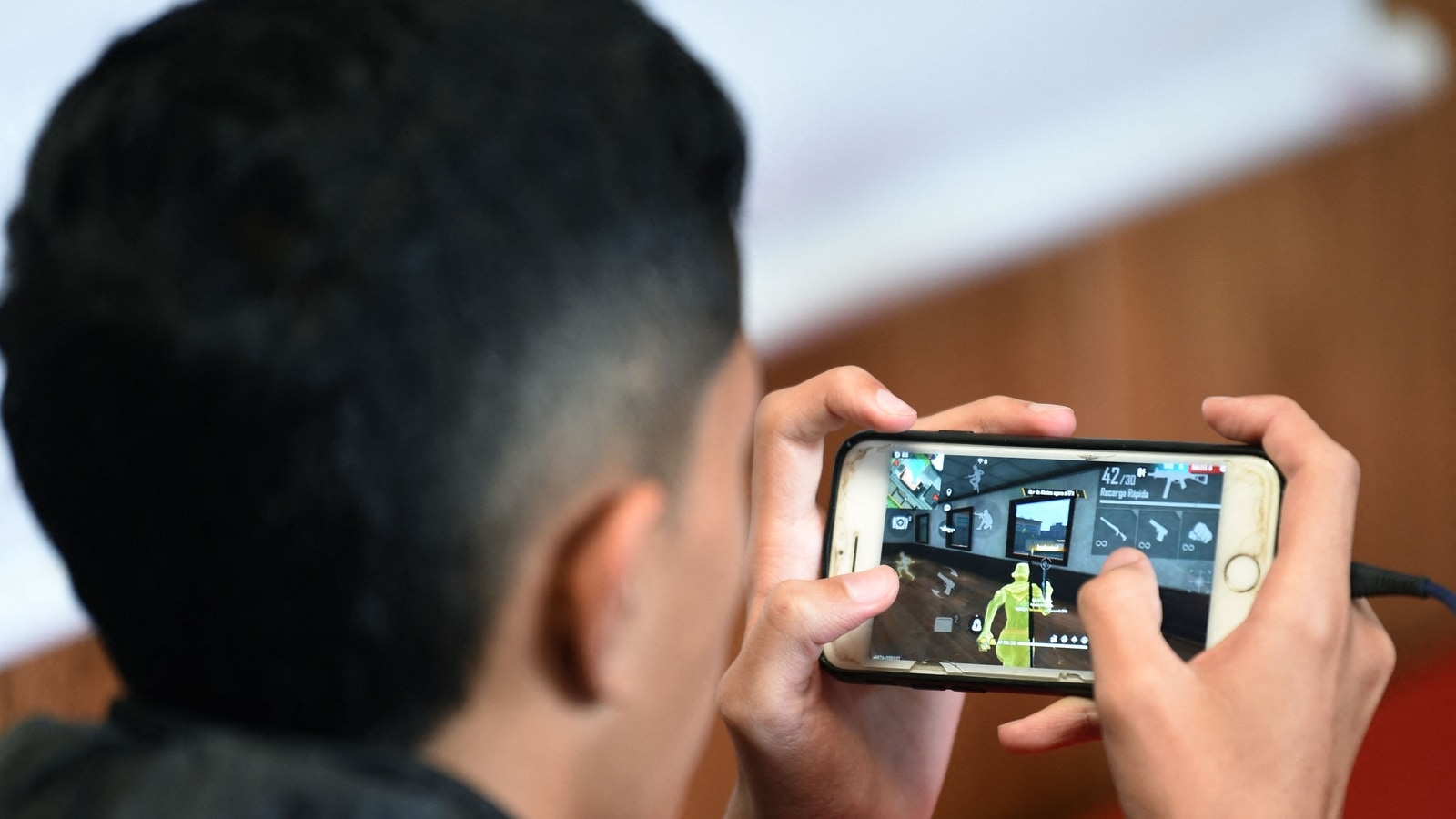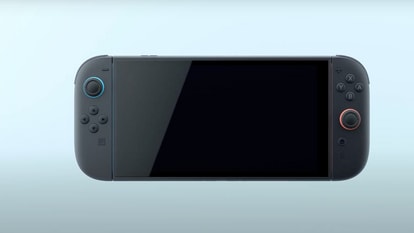Minecraft to Roblox, is video game addiction a real illness?
The founder of a treatment clinic says ‘yes,’ but she is also perplexed by the lack of adult patients.

Computer gaming was one of the lucky industries to grow during the pandemic. Global revenues are expected to pass $200 billion in the next two years.
But the industry's financial success is drawing some concern. Last month, the World Health Organization formally recognized video game addiction as an illness, but questions remain about how prevalent the issue is, particular among adults. Parmy Olson hosted a Twitter Spaces on March 16 with Henrietta Bowden-Jones, a medical doctor and founder of the U.K.'s National Center for Gaming Disorders. They were joined by Lisa Jarvis, a Bloomberg Opinion columnist covering healthcare and the pharmaceutical industry. Below is an edited transcript of their conversation.
Parmy Olson: Henrietta, could tell us why you started a clinic for gaming disorders in 2019?
Henrietta Bowden-Jones: My National Problem Gambling Clinic was going very well and in 2019 was replicated 14 times. I managed to add on this gaming clinic because of people's concerns around “loot boxes.” People wanted to know whether young people who were attracted to loot boxes while gaming might eventually be more likely to suffer from gambling harm.
Parmy: You must be seeing a much younger cohort now.
Henrietta: These gamers are still living at home. But what I see at this clinic is by no means representative of who is really suffering from this problem. I'm still perplexed by the fact that I'm not really seeing 20-year-olds, 30-year-olds. One has to ask the question, are they out there and don't know we exist? That's unlikely. So are the ones who are gaming compulsively not ready to come for help or is there a spontaneous remission that gets people to stop and start getting better?
Parmy: There is disagreement about whether gaming addiction is real or not. Do you see it as its own clinical problem, or is gaming addiction a manifestation of some other underlying psychiatric disorder?
Henrietta: I don't think there is a clear answer yet. People ask me whether the decision to classify gaming addiction was a good idea or not. I was delighted that decision was made because it's allowed people like me to open a clinic. The NHS would never have allowed me to offer treatment to people for something that was not deemed to be a disorder.
Parmy: Lisa, is there too much scaremongering about gaming disorders?
Lisa Jarvis: I think there might be a little too much scaremongering. We have all seen the headlines calling video games digital heroin or blaming violent crimes on video game addiction. Those tend to stick in our brains, especially when you're a parent and trying to weigh how much time you should allow your kids to spend on Minecraft or Roblox.
It's worth remembering that the disordered behavior only becomes a problem for a very small percentage of people who engage in gaming. I think studies have put it at 0.3% to 1% of people who are at risk of becoming addicted.
Remember that for some people, the social component of gaming can be very helpful, especially during an isolated period like the pandemic. There's also some science to suggest that when you don't use gaming in excess, it can be beneficial — improving attention span, helping with spatial relationships and problem solving. Some companies in the biotech world are actually using gaming to try to tap into the positive effects on the brain. The FDA has approved a video game that helps kids with ADHD improve their attention span as a digital medicine.
So there is potential for harm, but I don't think we should assume that all gaming is bad, which can too easily become the narrative.
Parmy: Henrietta, can you tell us a little bit about your findings just from these last few years of opening the clinics? Has anything surprised you?
Henrietta: We still don't have a clear understanding of the prevalence, but it's unlikely to be extremely high — it certainly isn't an epidemic. Lisa mentioned 0.3% to 1%, but there are much higher prevalence rates in several research studies, particularly in Asian countries. One of the first things we need to do here in the U.K. is to have a very thorough gaming disorder prevalence study, to understand who is suffering from this illness.
For most people, gaming is fun. I would also pick up on the social side. Several of our patients were very scared about being sent for treatment at our clinic because they worried that we would cut them off from their support networks … We created a program that allows a couple of hours a day for people to remain connected, while at the same time improving the activity side outside of gaming — developing skills, returning people to their clubs and sports, because a lot of these kids were very competitive in real life before they translated it all into gaming.
The people we've seen with gaming disorders are gaming without any control. In 2020, our patients were gaming for 12 to 18 hours a day on average. You hear about patients refusing to go to school. There is an element here of the game replacing something for these children.
A third of our patients said that they'd stopped looking after themselves, whether it's changing their clothes or showering. Half of our patients reported violent responses when parents try to remove consoles or phones.
Parmy: It's a real bind for parents to figure out how to moderate the amount of gaming that their kids do. Lisa, what kinds of tools are available?
Lisa: I think about this as a parent all the time. When it comes to parental controls, different gaming consoles have ways of letting you set limits directly on the device or from your phone. I know parents who use an app that turns the WiFi off at a certain time in the evening, so that kids are forced to take a brain break from games and social media, too.
One thing is to start early with trying to set limits around the use of screen time generally. The American Academy of Pediatrics has some clear guidelines: Making sure you're setting a time limit that is based on the child's age; making sure kids do their gaming after they've completed other tasks like their homework or chores; making it really clear what happens when a child breaks a rule on gaming and making sure the content of the games is appropriate.
The toughest one I think is being consistent with enforcing those rules to prevent things from going out of control in the first place. Many of our rules went out the window during the pandemic when our kids were home during remote school.
Henrietta: I've got two children, who are a bit older now, but I would cut gaming off at two hours and then put their Nintendos in the oven which was high up where the kids couldn't reach. Of course, sometimes I'd forget and turn the oven on and there'd be these two consoles getting warmer and warmer.
Gaming disorder is rare, but severe when you come across it. We've had patients open the window and threaten to jump out, leaving the house in the middle of the night to walk for miles to go somewhere where they can find internet, attacking the parents, breaking down doors to try and get to locked-up devices.
They are inventive and they are assiduous in their pursuit of these activities in a way that is very hard to imagine in such young children. By the time we see them, there is an exasperation in the parents and a hopelessness, sometimes fear too. A recurring theme is, when the children get angry, they take it out on their brother or sister or the family dog.
People we treat present with poor regulation of boredom, low mood with social anxiety and low self-esteem. If you match that with the idea of the escapism that gaming provides and indeed the rewards at a time when schools were closed, you see how someone could easily get into gaming more.
Parmy: A law that came into effect in the U.K. a couple of months ago forced social media firms like TikTok and Instagram to rein back the way they sent notifications to younger users of their apps. What can the video game industry do?
Lisa: Some of these games purport to be educational. I think it would help if there was more research on whether those actually have benefits.
Henrietta: I agree with that. Age verification is also really important and technology must come to the help of our young players because we know that impulsivity can be an issue for some of our patients. Making it too easy to purchase things is an issue.
I've been advocating for a long time for an independent board that can receive concerns from parents about specific games and look at harm. We often talk about a harm index and how helpful it would be for parents to understand the complexity of specific games or the ability to spend money. Things like that might actually lead them to decide on one game rather than another.
Parmy Olson is a Bloomberg Opinion columnist covering technology. She previously reported for the Wall Street Journal and Forbes and is the author of 'We Are Anonymous.'
Catch all the Latest Tech News, Mobile News, Laptop News, Gaming news, Wearables News , How To News, also keep up with us on Whatsapp channel,Twitter, Facebook, Google News, and Instagram. For our latest videos, subscribe to our YouTube channel.






























